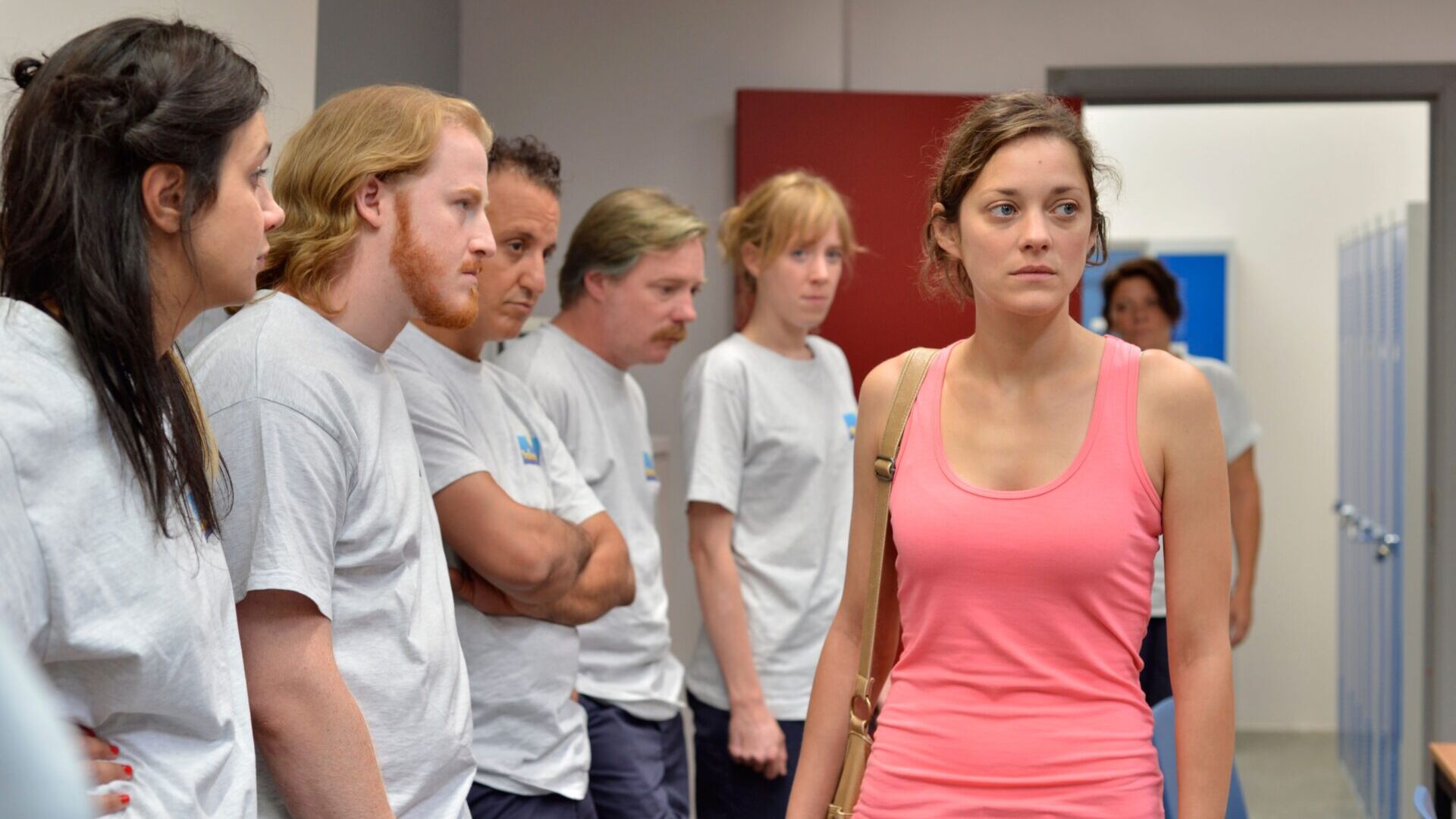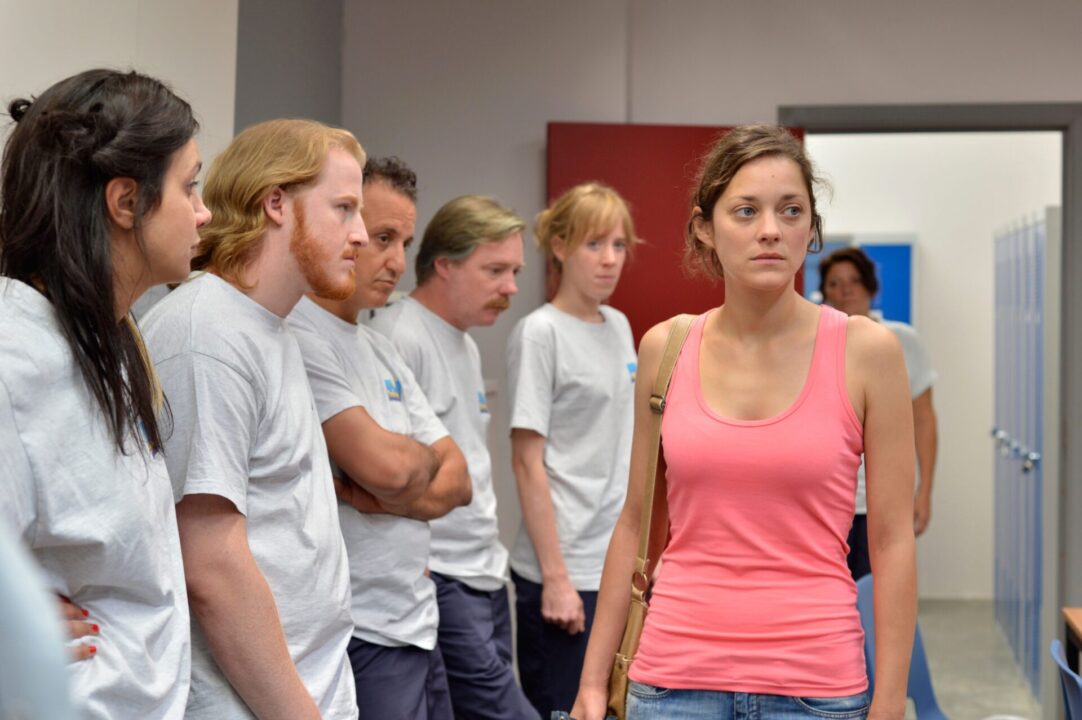Imagine yourself in this situation: you’ve recently been let go from your full-time job, but there is a way to save it–you have to convince the majority of your fellow co-workers to forego their newly received bonuses to bring your back. Do you think two days and one night is long enough to make that happen?
This is the premise for the new film, aptly titled, Two Days, One Night (Deux jours, une nuit), directed by socially-conscious filmmakers Jean-Pierre and Luc Dardenne, known also as the sibling directing team the Dardenne Brothers.In it, a worker, Sandra (Marion Cotillard), returns to work after an illness, only to learn that the company has realized that they can operate with one less employee–and that she is to be let go; unless, that is, a Monday-morning vote from the workers sees that they have changed heir minds and decided to bring her back and deny their new bonuses. While entirely simplistic in plot (it is assembled in numerous one-take sequences), its feel and reach extends deeply and intimately into humanistic storytelling which makes for an arresting experience.
While entirely simplistic in plot, its feel and reach extends deeply and intimately into humanistic storytelling which makes for an arresting experience.
With their earliest shared roots in documentary film-making, the Belgian-born Dardenne brothers have unarguably perfected their inspired style of Cinéma vérité (truthful cinema). The Dardennes, with a socially conscious and politically-aware portrayal of lower-middle class people in their movies, ranging from 2002’s The Son, 2005’s L’enfant, and 2011’s The Kid With a Bike, masterfully show how a working class people is subjected to larger cultural economies and institutions that suppress them. The result is watching a movie that feels entirely made up of stolen moments, of captured truths, and here, about humans existing in a flawed society that reveals how the human spirit that can be so suffocated and stifled.
Helming this demanding endeavor is Academy Award-winner Marion Cotillard as Sandra, whose uphill emotional battle throughout the entirety of the movie reveals the actress’s most stripped down and undeniable talents. Beyond her struggle to meet individually with her dozen-plus co-workers over one weekend’s time, Sandra also suffers from depression, and cripplingly so. Meeting with each new character, and with that, each new emotional realization and encounter, Sandra’s bouts of lapsing into weeping, hysterical, and exhausting sadness, resonate painfully with the audience by Cotillard’s commitments. The mother of two and spouse of supportive Manu (Fabrizio Rangione), she truly shines here and captures an honesty that keeps the simple storyline mesmerizing. In fact, Two Days, One Night marks the first major film from the Dardenne’s to feature an “A-list” actor–and it is to the credit of the filmmakers and actors alike that the result is one that showcases why no other players could have made as affecting a film.
Two Days, One Night is similar and reminiscent of, yet might not fall in line with the Dardenne’s other, more urgent and repeatedly “watchable” films, but this one has a spark all its own, for which it should be no doubt be celebrated. They are true masters of their craft, delivering small yet masterfully told stories about the human spirit.
Ryan Rojas
Ryan is the editorial manager of Cinemacy, which he co-runs with his older sister, Morgan. Ryan is a member of the Hollywood Critics Association. Ryan's favorite films include 2001: A Space Odyssey, The Social Network, and The Master.


